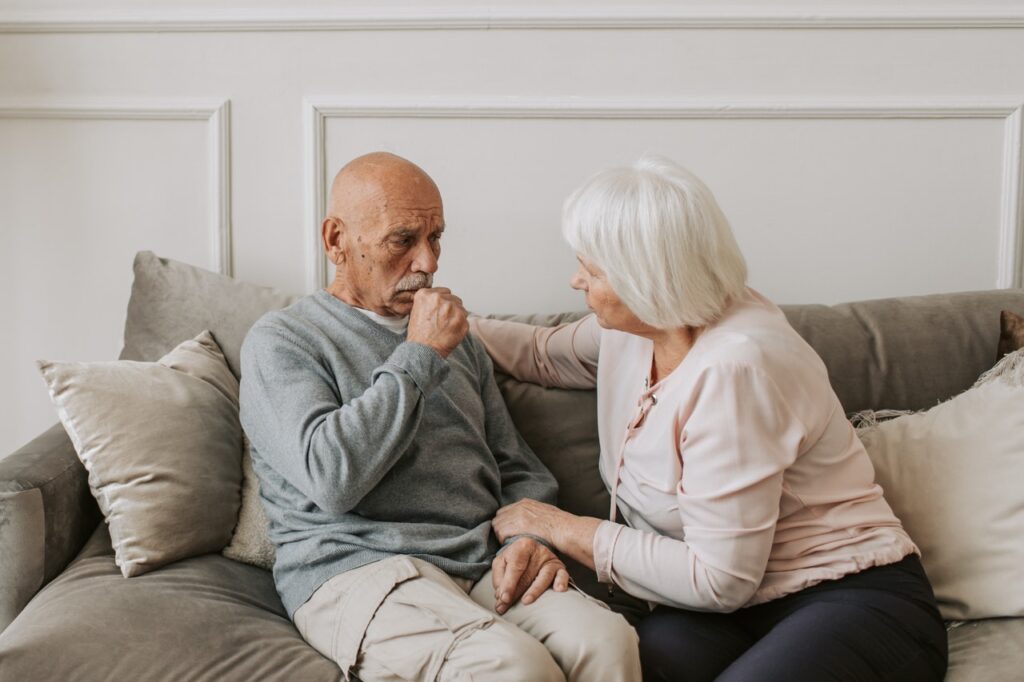So, what is a diabetic diet? The ADA or American Diabetes Association says there is no single answer. Healthy diabetic elderly diets contain non-starchy veggies and limit sweets and processed carbohydrates. However, diabetic elders have numerous pleasant and healthful meal and snack alternatives.
Diabetes is a glucose metabolism disorder, and it occurs when the pancreas fails to produce insulin or when the cells fail to respond to it. A high glucose release into the bloodstream can be regulated by insulin and carbohydrate restriction.
Diabetes is a serious issue for the elderly, who are particularly susceptible, especially since the dietary needs of the elderly are vital to their overall health. This is why a diabetic diet’s main goal is to control blood sugar.
How a Diabetic-Friendly Diet Works
Preventing glucose spikes will help you control your body’s insulin production. The diet’s purpose is to assist diabetics in losing weight, which is critical for older persons with limited mobility.
Here are some diabetic-friendly tips your elderly need to follow:
1. Portion Control
Rather than relying on processed, refined carbs, consume whole foods like fruits, vegetables, and legumes. It’s a complex carbohydrate that doesn’t spike blood sugar.
2. Mealtime Routines
Managing blood sugar is easier if you eat regularly and don’t miss meals. Eat regularly throughout the day to maintain a constant blood sugar level and avoid hypoglycemia. This should be coupled with taking medications on time.
3. Fiber-Rich Foods
Diabetic diets may be tasty if they have enough fiber. Because of its many health advantages, fiber has delayed carbohydrate digestion and hence increased blood glucose levels. Diabetes patients should eat more fruits, vegetables, nuts, and low-fat dairy.
4. Eat More Whole Foods
The healthiest diet is one made up of largely natural foods and no processed items. Sugar and harmful saturated fats are abundant in processed meals. Diabetics are also more prone to heart disease than non-diabetics, so they need to avoid high amounts of sodium in their diet. Unhealthy sodium levels in the diet can lead to hypertension and renal failure.
5. Adjust Routines
Many seniors have eaten the same meals for decades, and it can be difficult to overcome longstanding dietary patterns. You can start small, so you don’t have to change your diet overnight. Easing into appropriate eating habits for senior nutrition with the following suggestions:
Begin by implementing one or two specific adjustments every week. Instead of focusing on removing or restricting food, consider adding one nutrient-dense item every day. With a positive attitude towards a healthier diet, the elderly can successfully maintain a diabetic-friendly nutrition plan.
6. Replace Sugary Food with Healthier Alternatives
Some older people may struggle to adapt to a low-glucose lifestyle because they dislike the diabetes diet. Substituting healthful meals for sugary ones makes dieting more pleasant and easy.
Reducing the use of white rice, bread, and sugar will help the elderly. Brown or red rice only (or something darker, like violet rice or black rice). Instead, use whole-wheat bread. Replace white sugar with brown sugar, coconut sugar (muscovado), raw honey, or stevia.
Strawberry-flavored sparkling water is a terrific sugar-free option. Replace chips with sugar-free, calorie-free homemade popcorn.
Instead of sugary cereal, have plain yogurt and fruit. Sugar can be replaced with mint, cinnamon, nutmeg, and vanilla essence in baking. Cinnamon, for example, may help reduce blood sugar levels if consumed in moderation.
Conclusion
When you or a senior close relative has diabetes, it may appear challenging to maintain a pleasant, balanced diet given the constraints associated with the disease. Get the help of specialists for home elderly care who will provide various resources for the diabetic-friendly food plan you need.
A diabetic diet can be altered to be more palatable for seniors who otherwise might find it difficult to follow. Hire a professional caregiver if you or a senior loved one suffers from diabetes, becoming more frequent in the elderly.
Bridge Home Health & Hospice offers hospice care and elderly health services in California. Our team treats each patient as though they are a member of our family, with full consideration for their medical, psychological, and spiritual needs. We also provide professional clinical assistance in the privacy of your own home. Make an appointment right away!

